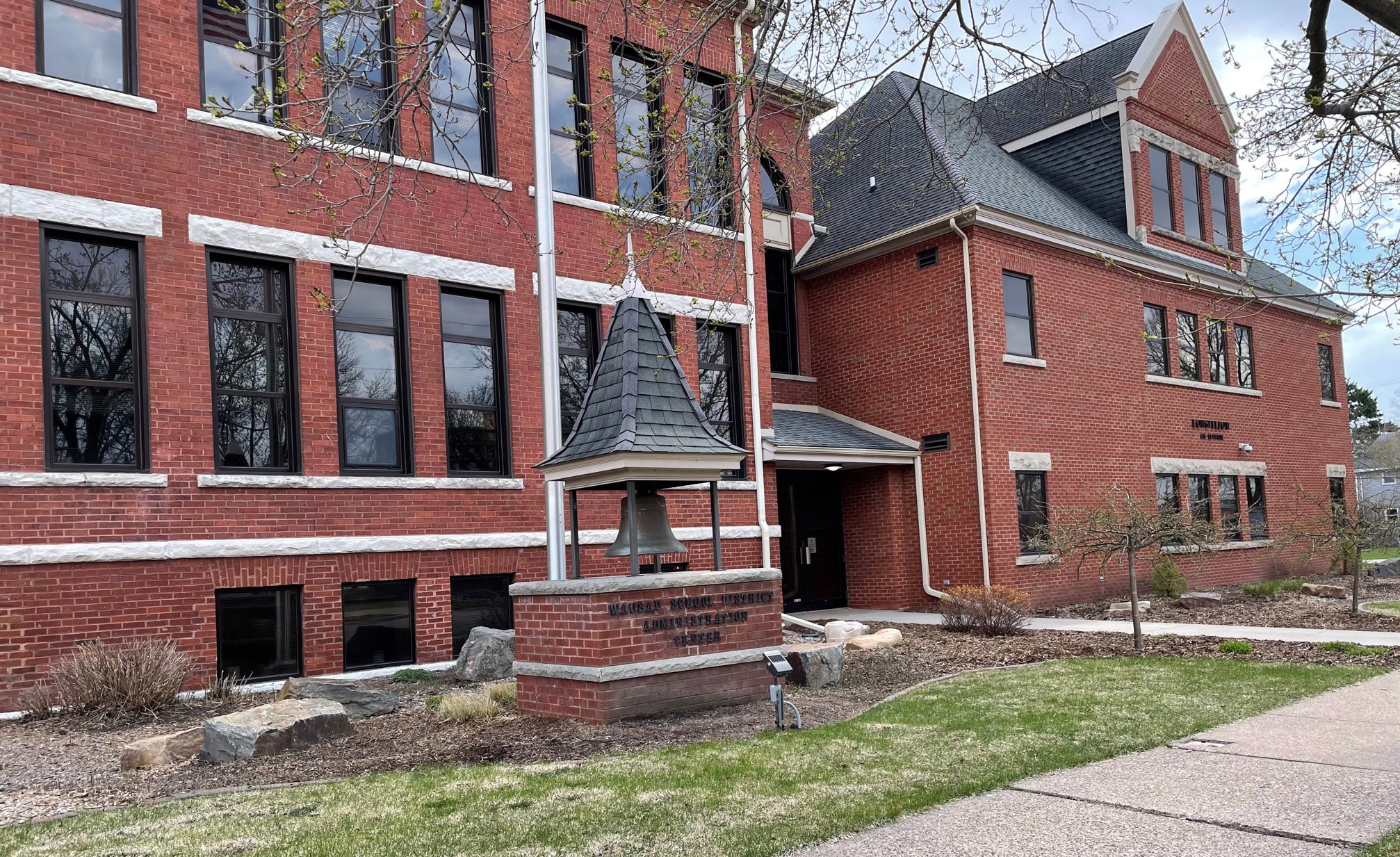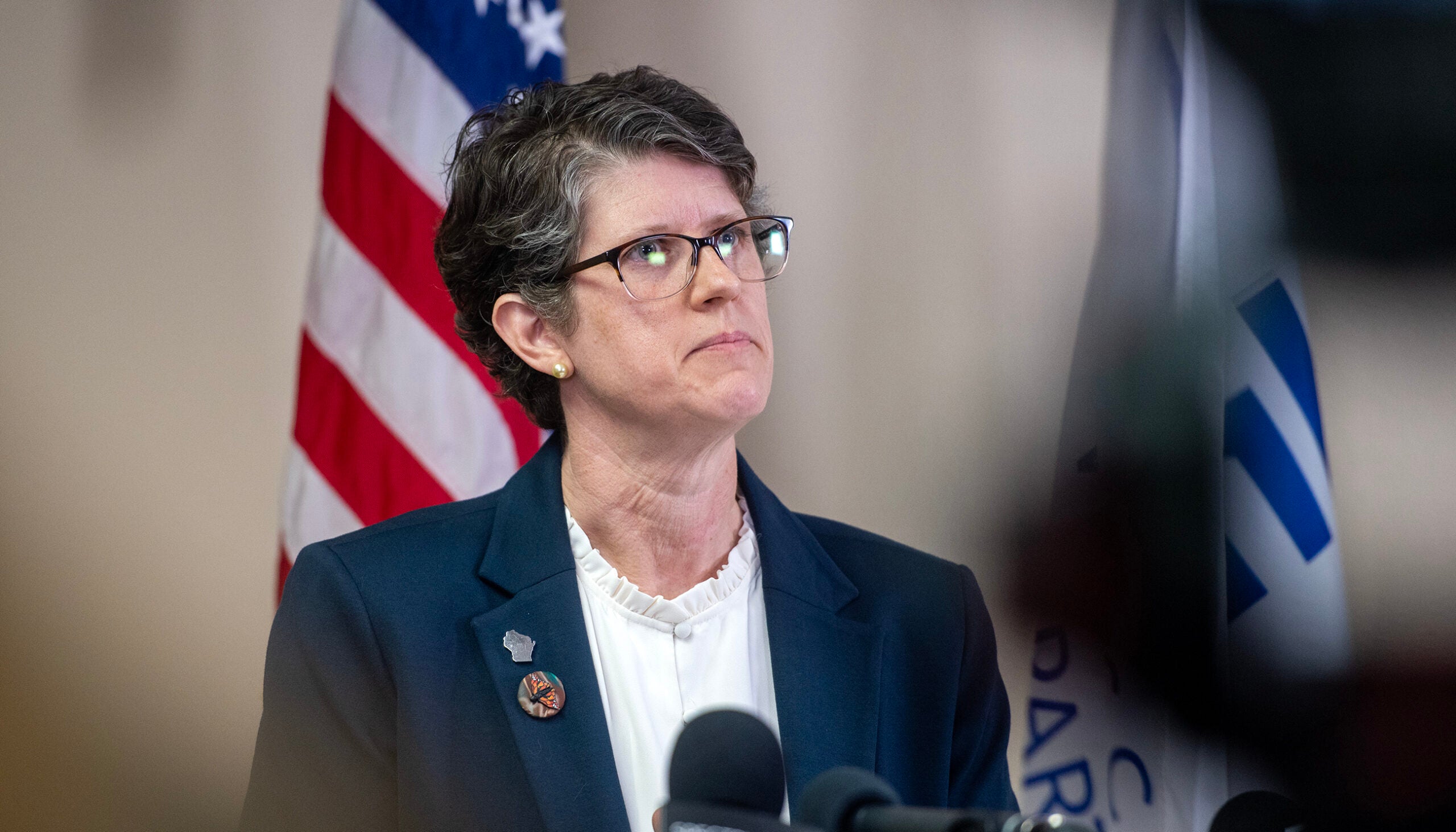Wisconsin school district superintendents wouldn’t need a license or specific educational training under a GOP-proposed bill.
The measure is an attempt to solve the high turnover rate among school district administrators and give local residents control of their schools, supporters say.
But opponents, including the state Department of Public Instruction, warn not having a licensed individual managing a school district could open districts up to countless liabilities with no option for recourse.
News with a little more humanity
WPR’s “Wisconsin Today” newsletter keeps you connected to the state you love without feeling overwhelmed. No paywall. No agenda. No corporate filter.
Current law requires that to be eligible for a district administrator license, the applicant must hold a teaching license or pupil service license, hold a principal license and have completed at least six semesters of teaching experience or six semesters of pupil services experience, including 540 hours of classroom teaching experience.
State Rep. Robert Wittke, R-Racine, said allowing school boards to appoint a lay person gives school districts more options.
“This bill is about giving school districts another tool and not mandating anything into practice,” Wittke said during a public hearing on the bill Tuesday. “So, therefore, more flexibility as we’re trying to improve performance in this day and age is something I’m very much in support of.”
Wittke said a manager, chief financial officer or community leader could handle leading a school district since district administrators don’t oversee classrooms.
A report from the Wisconsin Policy Forum found between 2009 and 202, there were 811 instances of superintendent turnover across 427 districts. This equates to 16.2 percent of districts experiencing a superintendent transition each year on average.
Still, Jennifer Kammerud, DPI’s director of the Licensing, Educator Advancement and Development Team, says changing the law would be harmful to students, educators and public schools in the state.
“While the department understands that school boards will look to hire the best, most qualified individual, this bill breaks the state’s promise to the public that individuals in these positions possess a certain set of experiences, knowledge, skills, dispositions and abilities to serve the public and oversee the schools students are entrusted to every day,” Kammerud said.
Kammerud said not having a prepared and experienced administrator would hurt rural districts the most because those superintendents wear many hats.
“As you can imagine, school district administrators in small schools are doing everything from special education to business services to principal to curriculum and instruction, to human resources, to teacher,” Kammerud said. “They are responsible for the implementation of all state and federal laws.”
Barb Sramek, with the University of Wisconsin-Madison School of Education, said as of this week, all the superintendent positions in the state are filled.
“We contend that licensure is worth preserving,” Sramek said. “Superintendents must possess a range of skills to do their jobs well. Not only do they need to know the fundamentals of teaching and human development, but they also must manage complex public institutions that serve everyone. There’s no other institution with such importance to our youth.”
Milwaukee Public Schools has been exempt from state law and able to hire an unlicensed district administrator for more than 30 years.
In the 1990s, Superintendent Howard Fuller, who was and continues to be one of the most highly regarded leaders, led the district without a DPI license. Fuller is a distinguished professor emeritus of education at Marquette University. He has Ph.D. in sociological foundations of education from Marquette.
Wittke gave the example of Fuller while making the case for the bill, but Sen. Chris Larson, D-Milwaukee, called the example “cherry-picking.”
Larson said allowing school boards to choose a superintendent would be similar to letting the community pick the next doctor.
“What I think is we should have high standards across the board, instead of trying to deconstruct public education because we fear what comes out of public schools,” Larson said.
When asked by lawmakers if a different bill should be written to take away MPS’s ability to hire a non-licensed administrator, DPI said yes.
“The department is here in opposition to the bill because it is bad policy,” Kammerud said, “regardless of the district it applies to.”
Wisconsin Public Radio, © Copyright 2025, Board of Regents of the University of Wisconsin System and Wisconsin Educational Communications Board.







